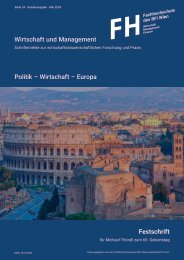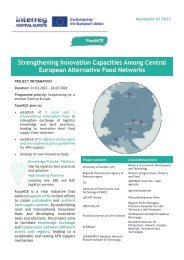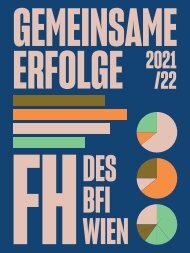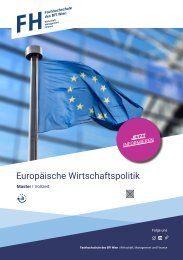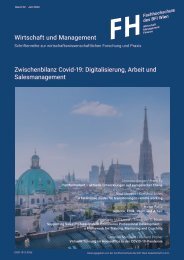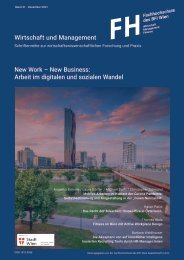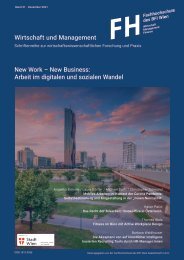The EU, the EEU, and the War in Ukraine: Political Risks and Management Options
This special issue entitled “The EU, the EEU, and the War in Ukraine: Political Risks and Management Options” is published within the framework of the Jean Monnet Network project “The EU and the EEU: Between Conflict and Competition, Convergence and Cooperation” (EUCON). The aim of this project co-funded by the Erasmus+ programme is to explore the complexity of relations between the European Union and the Eurasian Economic Union.
This special issue entitled “The EU, the EEU, and the War in Ukraine: Political Risks and Management Options” is published within the framework of the Jean Monnet Network project “The EU and the EEU: Between Conflict and Competition, Convergence and Cooperation” (EUCON). The aim of this project co-funded by the Erasmus+ programme is to explore the complexity of relations between the European Union and the Eurasian Economic Union.
- No tags were found...
You also want an ePaper? Increase the reach of your titles
YUMPU automatically turns print PDFs into web optimized ePapers that Google loves.
Florence Ertel / Julian Plottka<br />
all this was done with <strong>the</strong> back<strong>in</strong>g of Nazarbayev, who called on <strong>the</strong> Kazakh citizens to support<br />
Tokayev (Eastblog 2022). All <strong>in</strong> all, Tokayev proceeded with <strong>the</strong> “de-Nazarbayevication” very<br />
cautiously. <strong>The</strong> new government is a very good example that <strong>the</strong> changes do not mark a total<br />
breakup with <strong>the</strong> old elites: eleven of <strong>the</strong> new members of government already served <strong>in</strong> <strong>the</strong><br />
previous one. This can be <strong>in</strong>terpreted as a clear signal that beneficiaries of <strong>the</strong> old system do<br />
not need to worry much about <strong>the</strong>ir privileges. As Tokayev’s power is still potentially disputed<br />
by rivals <strong>in</strong> <strong>the</strong> regime, <strong>the</strong> established elite cont<strong>in</strong>ues to set clear limits on how far reforms can<br />
go without becom<strong>in</strong>g too pa<strong>in</strong>ful for <strong>the</strong> oligarchs. On one h<strong>and</strong>, <strong>the</strong> elite rema<strong>in</strong>s a factor limit<strong>in</strong>g<br />
Tokayev’s ability to pursue reforms <strong>and</strong> fulfil <strong>the</strong> protesters’ dem<strong>and</strong>s. This could result <strong>in</strong><br />
new pressure for reforms from <strong>the</strong> streets. On <strong>the</strong> o<strong>the</strong>r h<strong>and</strong>, too far-reach<strong>in</strong>g reforms to fulfil<br />
citizens’ dem<strong>and</strong>s can also be a potential risks to system stability as <strong>the</strong> possibility of ano<strong>the</strong>r<br />
coup d’état <strong>in</strong>itiated by rivall<strong>in</strong>g groups <strong>in</strong> <strong>the</strong> regime cannot be ruled out.<br />
While <strong>the</strong> Kazakh president’s early reactions to <strong>the</strong> protests <strong>in</strong> January 2022 <strong>in</strong>cluded <strong>the</strong> promise<br />
of socio-economic reforms, his reform agenda has changed s<strong>in</strong>ce 24 February 2022. On<br />
16 March 2022, Tokayev addressed <strong>the</strong> Kazakh people with an early state of <strong>the</strong> nation address,<br />
detail<strong>in</strong>g his reform agenda <strong>in</strong> ten <strong>the</strong>matic clusters. N<strong>in</strong>e of <strong>the</strong> ten clusters dealt with <strong>the</strong><br />
political system of Kazakhstan, cover<strong>in</strong>g <strong>the</strong> powers of <strong>the</strong> president <strong>and</strong> parliament, a reform<br />
of <strong>the</strong> electoral system, <strong>the</strong> electoral process <strong>and</strong> <strong>the</strong> law on political parties, human rights, <strong>the</strong><br />
adm<strong>in</strong>istrative system <strong>and</strong> decentralisation (President of <strong>the</strong> Republic of Kazakhstan 2022b).<br />
Only <strong>the</strong> tenth <strong>the</strong>matic cluster comprised anti-crisis measures to mediate <strong>the</strong> economic fallout<br />
from Western sanctions on Russia. <strong>The</strong> first emergency measures were controls on capital<br />
flows as <strong>the</strong> tenge was closely follow<strong>in</strong>g <strong>the</strong> Russian ruble <strong>in</strong> its decl<strong>in</strong>e. About six weeks after<br />
<strong>the</strong> Russian <strong>in</strong>vasion, <strong>the</strong> exchange rate of ruble <strong>and</strong> tenge had stabilised. A second priority was<br />
<strong>the</strong> stabilisation of food prices by boost<strong>in</strong>g national agricultural production, a challenge which,<br />
as outl<strong>in</strong>ed before, could be crucial for ma<strong>in</strong>ta<strong>in</strong><strong>in</strong>g stability <strong>in</strong> Kazakhstan. Additional economic<br />
measures rema<strong>in</strong>ed vague, but <strong>the</strong> president did announce his <strong>in</strong>tention to <strong>in</strong>itiate a structural<br />
reform package of de-bureaucratisation <strong>in</strong> <strong>the</strong> economic <strong>and</strong> public adm<strong>in</strong>istration to <strong>in</strong>crease<br />
<strong>the</strong> efficiency of crisis responses (President of <strong>the</strong> Republic of Kazakhstan 2022b).<br />
This economic reform priority is completely different from what citizens protest<strong>in</strong>g <strong>in</strong> January<br />
2022 had <strong>in</strong> m<strong>in</strong>d when call<strong>in</strong>g for socio-economic reforms. <strong>The</strong> proposed measures consider<br />
citizens’ concerns; <strong>the</strong>y do reflect that <strong>the</strong> government has understood how crucial socio-economic<br />
development is for ma<strong>in</strong>ta<strong>in</strong><strong>in</strong>g its legitimacy. However, <strong>the</strong> proposed agenda ma<strong>in</strong>ly<br />
moderates expectations. <strong>The</strong> measures are realistic <strong>in</strong> that, given <strong>the</strong> previously described<br />
geopolitical <strong>and</strong> economic circumstances, stabilis<strong>in</strong>g <strong>the</strong> economy <strong>and</strong> prevent<strong>in</strong>g any fur<strong>the</strong>r<br />
deterioration of citizens’ economic situation are <strong>the</strong> only achievable objectives <strong>in</strong> <strong>the</strong> short term.<br />
As <strong>the</strong> Kazakh president is aware that bus<strong>in</strong>ess as usual <strong>in</strong> domestic politics is a fundamental<br />
threat to his <strong>and</strong> <strong>the</strong> system’s legitimacy, he focuses on political reforms. Regardless of geopolitical<br />
circumstances, he can follow up on his previous reform agenda address<strong>in</strong>g <strong>the</strong> Kazakh<br />
political system. Based on additional legitimacy generated by <strong>the</strong> protests <strong>in</strong> January, he can<br />
speed up <strong>the</strong> process. Thus, <strong>the</strong> reforms proposed <strong>in</strong> <strong>the</strong> state of <strong>the</strong> nation address <strong>and</strong> those<br />
26 Wirtschaft und <strong>Management</strong> · B<strong>and</strong> 33 · März 2023





